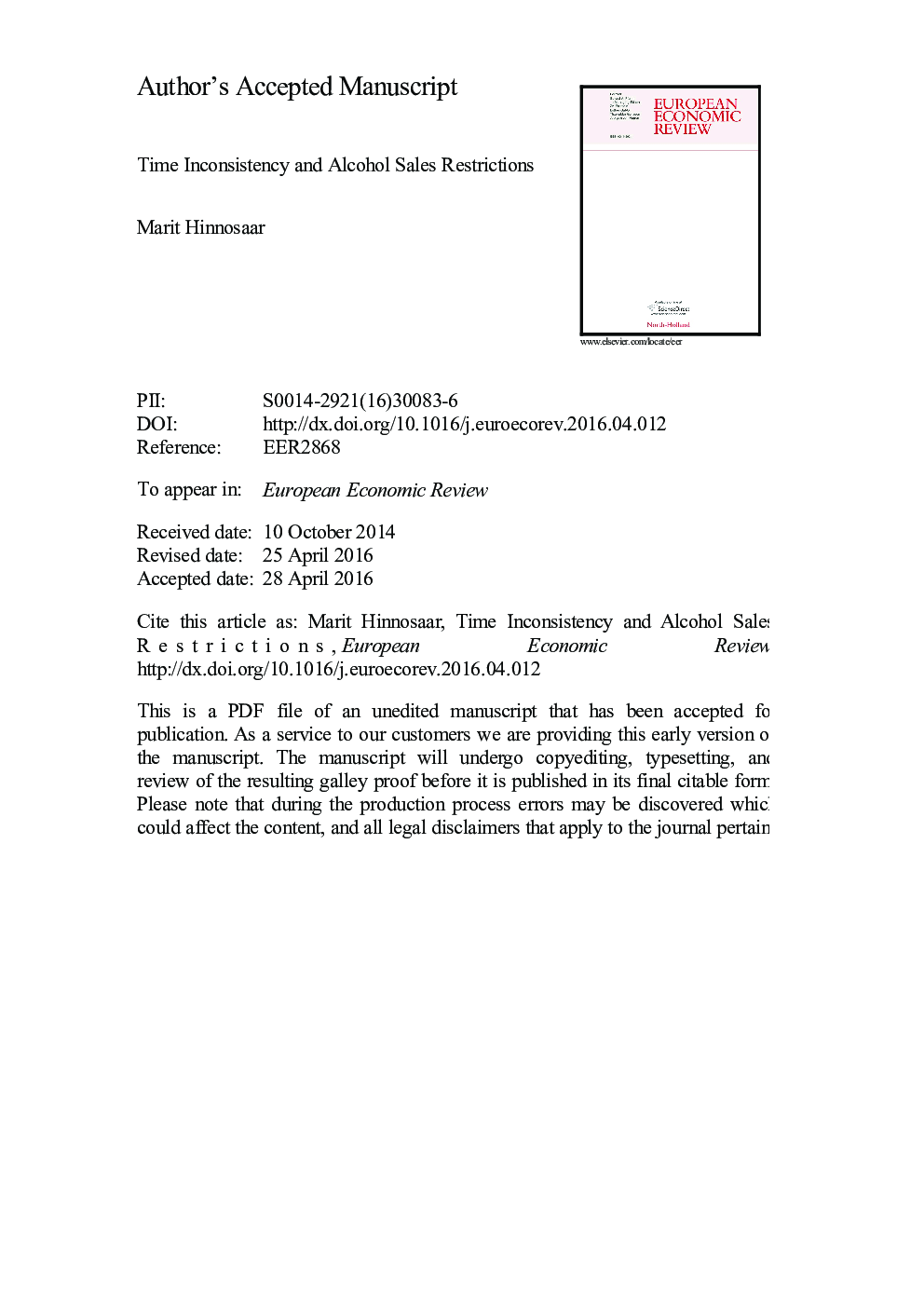| Article ID | Journal | Published Year | Pages | File Type |
|---|---|---|---|---|
| 5066564 | European Economic Review | 2016 | 54 Pages |
Abstract
Restrictions on alcohol sales hours or days are commonly used tools in order to reduce alcohol consumption. However, a forward-looking consumer can buy in advance, and thereby mostly undo the impact of the restriction. I study whether time inconsistent consumer preferences can provide a justification for restrictions on alcohol sales time. I estimate a demand model, which allows a fraction of consumers to be time inconsistent, using scanner data of beer purchases and other shopping behavior. According to the estimation results, 16% of regular beer buyers, or only 3% of all consumers, behave as if they are time inconsistent. I find that in terms of consumer welfare, the sales restriction may be welfare improving, but is worse than increasing taxes.
Related Topics
Social Sciences and Humanities
Economics, Econometrics and Finance
Economics and Econometrics
Authors
Marit Hinnosaar,
